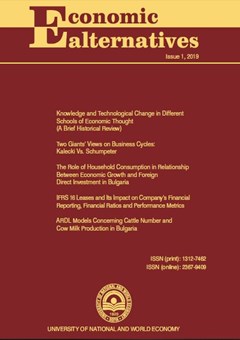IFRS 16 Leases and Its Impact on Company’s Financial Reporting, Financial Ratios and Performance Metrics
Authors: Eleonora Stancheva-Todorova, Nadya Velinova-Sokolova
Abstract
The new Leases Standard, IFRS 16, was released by the International Accounting Standards Board in January 2016 and superseded IAS 17 Leases for reporting periods beginning on or after 1 January 2019. The new rules introduce asymmetrical models of the lessee and lessor accounting. Finance lease/operating lease distinction is no longer relevant for lessees but has been retained for lessors. The impact of IFRS 16 depends on a company’s relative number of existing operating lease arrangements and varies across industries. In this paper we have discussed the IFRS 16 effects on lessee’s financial statements, financial ratios and key performance indicators. These effects have been illustrated in the case of a food retailer as retailers will be most heavily impacted by the changes in the lease requirements. The implementation of the new accounting rules will lead to an increase in leased assets (the right-of-use assets) and financial liabilities on the balance sheet of the lessees with material former off-balance sheet leases and their EBITDA will increase substantially. To be more precise, we have split the analysis of the effects on company’s profit or loss into “individual lease” and “portfolio of lease” cases. In both cases there will be a reduction in entity’s equity compared to the former rules of IAS 17. The expected effects on profit before tax will be insignificant for many companies because of the “portfolio” effect. Operating profit will increase due to the reclassification of former lease expenses into depreciation and amortisation expenses and finance costs. Entities with material off-balance sheet lease commitments will encounter significant changes in their key financial metrics such as leverage ratio, return on invested capital and valuation multiples. Their leverage will increase significantly and interest coverage will decrease. The effect on company’s debt covenants from IFRS 16 implementation has also been discussed.

